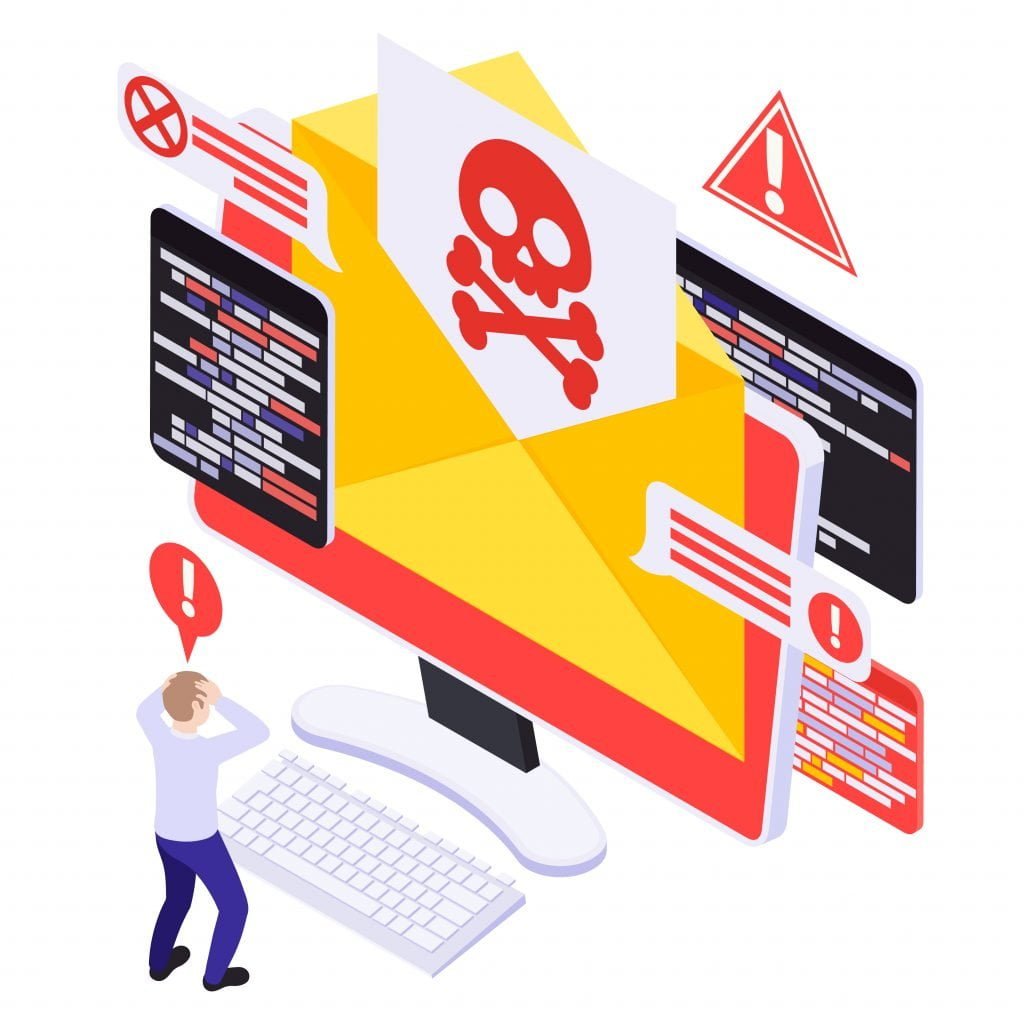
Viruses, trojan horses, adware, spyware, ransomware, key loggers, etc., are all examples of malware. These programs execute malicious code, and hackers take advantage of that exploit to steal essential data. Malware is frequently difficult to recognize unless you are aware of some of its common symptoms. If a computer on the network at your place of business becomes infected and ignored, the virus quickly infects all the other computers on the same network. If a network is compromised, it may take the company more than a week to recover all the data, which results in a significant loss of critical time. By design, malware spreads and harms as many machines as possible.
As soon as possible, remove the virus to limit the harm. If found quickly, isolating, and cleaning the infected device guarantees the entire network’s security. Reckon that infection sounds familiar? We are winking at you, COVID-19. You must recognize the warning indications of a malware assault on your system and take action to limit the damage, just as you would if you wanted to avoid another protracted shutdown in Melbourne. Here are some hints for spotting the most typical con games malware plays on your system.
Pop-up windows on the desktop
Malware might pose as an antivirus program or as another widely used app. It then continues to appear on your screen in the form of an antivirus renewal notice, a warranty notice, or some other offer that looks genuine. Hackers frequently create malware that imitates popular computer software, so users will be more likely to click on them. Your computer may have been infected with malware if you often notice these pop-ups without cause.
Increasing Computer Lag
Computers typically lag when executing memory-intensive tasks, complicated programs, or multiple browser tabs and apps at once. You would know what slows down your computer if you were a frequent user. If you observe an unneeded slowdown, malware can be the cause. For instance, it may be under attack if your computer runs slowly or hangs, even though you do not have many active open tabs or large programs. Because malware runs in the background and consumes RAM and other system resources, it tends to make your computer slower.
Crashing Apps
Apps can occasionally fail due to software bugs, problems with security updates, etc. However, if your apps routinely and unexpectedly collapse, be on the lookout for spyware or a virus. You may need to reset your computer or restart the apps to continue working in these circumstances. Checking for red flags like frequent app crashes can do better for you.
Redirecting to a Different Home Page
A particular type of virus can alter your browser settings and change your home page to dangerous phishing sites with plenty of pop-up advertising when it infects your computer. If you detect such changes, get your computer thoroughly inspected because the problem will not be resolved by simply returning your home page settings to their original state. To ensure the security of your data, you must thoroughly remove the malware from your computer.

Excessive System Reboots
A general characteristic of malware is that it modifies essential system files and affects how the OS runs. The OS becomes unstable and crashes when it alters or corrupts system files. Without prior notice, the system reboots abruptly, erasing all work and data.
Having a Hard Drive Space Problem
Malware takes up a lot of space on your system, duplicates files, and even generates many useless new files. Therefore, if you discover that you have suddenly lost a lot of disk space on your computer, the virus is undoubtedly to blame. These files typically have common system file names, making it impossible to look for and remove them manually. To eliminate such malware, performing a virus check or hiring a professional to clean up the computer is preferable.
Many Corrupted Files
Although files can become corrupted for several reasons, your computer may become infected if you have a lot of corrupted files that you cannot open. The loss of data in corrupted files is a severe problem, and you risk having hackers get access to every one of them. It would be best if you got immediate professional assistance with this.
Unfamiliar PC Sounds
We are sure everybody has heard computers’ background noises while running intensive apps, and these sounds end as soon as the computer completes the task. However, you should get a virus scan done if you frequently hear these sounds while not engaging in any such memory-intensive activity. Malware may be sucking up RAM and putting your computer at a sluggish pace.
Take quick action if you spot any of these indicators on your PC. Get a professional scan performed by a reputable company because online scans are not always reliable and may even contain viruses. It is best to stay secure regarding malware and the COVID-19 virus. Call us to assess your potential virus problem in your business computers, and do not forget to contact your Covid-19 action center in case of a virus infection. Your computer may not get caught, but indeed you could.





